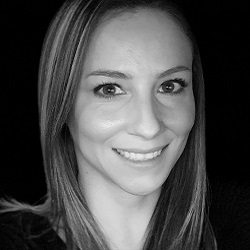News
When It Comes to Social Media, Doctors Are Held to a Higher Standard
February 26, 2019
A physician receives a Facebook friend request from a patient they just treated. Unusual? Not really.
Bernadette Riley, D.O., associate professor of family medicine in NYIT College of Osteopathic Medicine (NYITCOM) and director of the Ehlers-Danlos Treatment Center, explains that this is something medical students will face as future physicians.
“Social media platforms increase patients’ access to physicians and often blur the boundary between a physician’s professional and private life,” says Riley, who recently published an article on the professional impact of social media in the Journal of the American Osteopathic Association.
Ninety percent of medical students use social media, and a growing number of healthcare organizations now encourage professionals to have a social media presence. However, as Riley notes, physicians are held to a higher standard. Content posted to social media platforms, as well as dating apps like Tinder, could possibly jeopardize a physician’s professional credibility.
A study of U.S. urology residency graduates found that most of the graduates’ Facebook settings were not private and more than half had posted unprofessional content. This behavior was seen equally among osteopathic and allopathic urologists, both male and female.
“Movements like #MeToo are making us more aware of the way we interact with others. A post, text, or comment you shared years ago could potentially impact your ability to secure a residency,” Riley says.
In fact, more than half of U.S. medical school deans report complaints of inappropriate online postings by their medical students. This rise in professionalism complaints has also been observed in the field where many medical organizations have established physician guidelines for social media and social networking sites.
However, there is not yet a mandated standardized curriculum to help medical students fully grasp the consequences of social media usage. Medical students at risk for future professionalism complaints often exhibit red flags early in their medical career, and Riley believes a required online professionalism curriculum could help them to avoid future complaints and potential medical board investigations.
She also reminds medical students that they can still be proactive without a formal lesson, noting that medical students should be aware of privacy settings and set them accordingly, as well as establish boundaries with fellow users.
“If you’ve been tagged in a post that may be deemed inappropriate, don’t be afraid to remove yourself. When in doubt, act as you would in the office.”



_Thumb.jpg)

